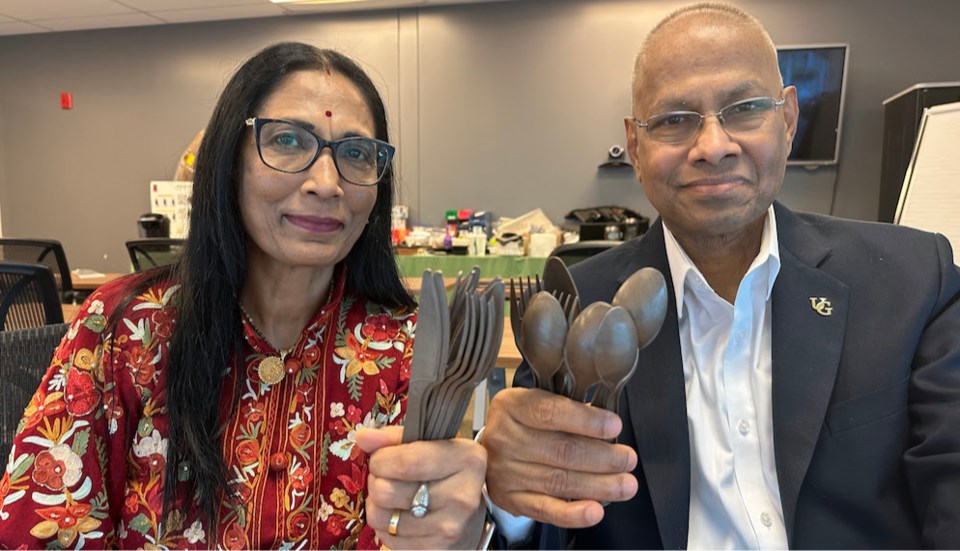Starting this month, several major fast-food chains across Canada will offer new eco-friendly cutlery developed at the University of Guelph.
In late 2022, the federal government announced a move to ban the manufacture, import and sale of plastic items such as grocery bags, straws, stir sticks, cutlery and take-out containers.
The new line of knives, forks and spoons, called Ecosys Cutlery, is aimed at lessening plastic waste and pollution, reducing emissions of greenhouse gases and lowering the carbon footprint within the hospitality industry.
About 40 billion pieces of plastic cutlery are produced in North America each year. Using fully compostable cutlery,could save an estimated 180,000 tonnes of CO2.
Steve De Brabandere, director of technology transfer and industry liaison at U of G’s Research Innovation Office, says plastic products should be recycled, but instead, often end up in landfill sites.
“Compostable cutlery makes it both easier to reuse and more environmentally friendly when disposed of. This is a step in the right direction,” De Brabandere said.
Both product lines are made of waste coffee material and biopolymers in a certified industrially compostable biocomposite resin created by researchers in U of G’s Bioproducts Discovery and Development Centre (BDDC).
“We are turning coffee bean skins into cutlery,” said Amar Mohanty, BDDC director and a professor cross-appointed in the department of plant agriculture within the Ontario Agricultural College and the School of Engineering in the College of Engineering and Physical Sciences at the university.
“We want to reduce dependence on fossil polymers and waste plastics and the amount of carbon going into the atmosphere," he said.
Mohanty says the diversion of coffee chaff from landfills can significantly reduce carbon emissions.
“In addition, these products meet the single use plastic prohibition regulation (SUPPR) guidelines of the Canada government,” Mohanty said.
The University of Guelph has also developed compostable coffee stir sticks already being sold in Italy.
Established in 2008, the BDDC uses renewable agricultural products as alternatives to petroleum-based sources to make more sustainable products including eco-friendly packaging materials and car parts.
BDDC collaborator Competitive Green Technologies (CGTech) based in Leamington, Ont., licensed the formulation to make a compostable, commercially viable resin.
This material is then used by other companies that produce and distribute food-service items such as cutlery and stir sticks in Canada and Italy.
“When we make any product with a material that has a lower Kg-CO2 equivalent/Kg than the incumbent material, it reduces GHGs to that extent. And also, we are working with the company partners to reduce the weight of the cutlery to have even lower emissions, and the coffee chaff-based biocomposite resin facilitates that,” Mohanty said.
“It is very fulfilling. Credit goes to our team of dedicated researchers and our ecosystem partners. It is very satisfying to have this kind of research adopted and commercialized in Canada creating employment and helping the environment, which is the need of the hour.”
Research is supported by the university’s partnership with the Ontario Ministry of Agriculture, Food and Rural Affairs; the Ontario Ministry of Colleges and Universities; the Natural Sciences and Engineering Research Council of Canada; Agriculture and Agri-Food Canada; the Canada Foundation for Innovation; U of G alumni; and private partners including BMO Financial Group.



